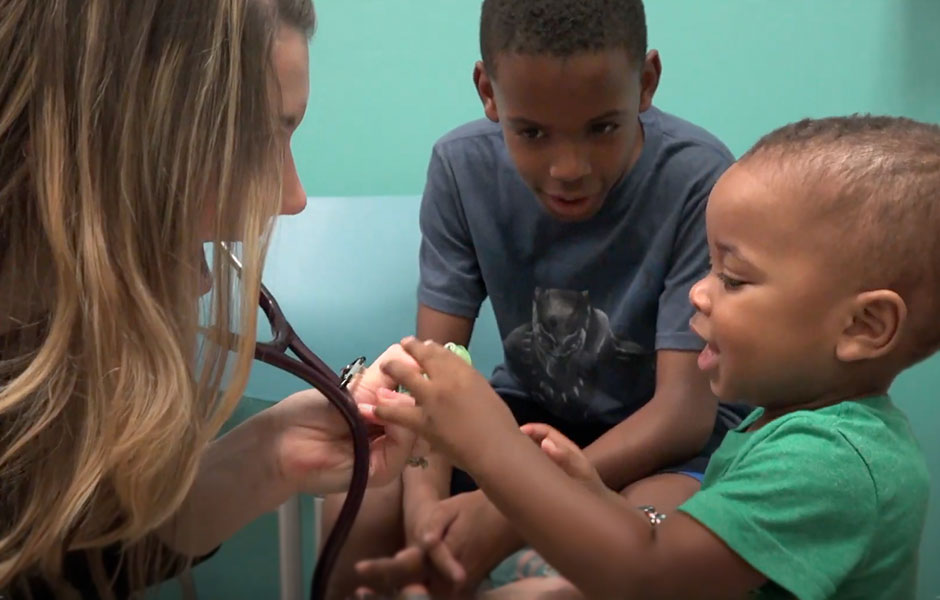Welcome to Our Program
Welcome to our pediatric residency program, where we embrace the essence of family, fostering love not only amongst ourselves but also extending it to our cherished patients.
Community — We celebrate inclusiveness and unite in the pursuit of knowledge, supporting one another through every step of our learning journey.
Incredible Opportunities — Explore extraordinary paths, including our esteemed global health track and transformative HELA Track.
By the time you complete your residency here, you will emerge as an exceptional pediatrician, equipped with the skills and expertise to pursue the most competitive fellowships or embark upon the fascinating career of your dreams.
About the Program

We have pooled the considerable resources of two major institutions to create exciting, high-quality programs in patient care, biomedical research and, in particular, resident training. With the strong financial backing of Nemours, the broad patient bases of the Nemours Children’s Hospital, Delaware, and the rich academic heritage of Sidney Kimmel Medical College of Thomas Jefferson University (TJU), we have developed a unique educational program. Gain a wealth of experience working with nationally recognized physician-educators in a variety of pediatric disciplines, and with patients in hospital, clinic and private practice settings.
You’ll receive exposure to several hospitals serving distinct communities:
Nemours Children’s Hospital, Delaware, (primary teaching hospital) Wilmington, Delaware
Thomas Jefferson University Hospital, Philadelphia, Pennsylvania
As you read the following information, we believe you will share our enthusiasm and excitement for our dynamic pediatric residency program.
From Pediatric Cancer Survivor to Aspiring Pediatric Oncologist: One of our very own residents is dedicating his life to fighting pediatric cancer.
“What I love about Nemours is the people. From your co-residents, to the most senior attendings and program leadership, everyone is always willing to help each other out. It's great to be part of such a supportive program."
—Dominique Jones, Class of 2024
“The hospital is a beautiful place, providing an ideal workplace for learning how to take care of all types of children, from 'bread and butter' to medically complex.”
—Brady Stevens, Class of 2024
"For me, the best part of the program has to be the residents. This cray, humble, compassionate group has made this program feel like home from minute one"
—Nate Rehmeyer, Class of 2026
“My co-residents quickly became some of my closest friends. Working with incredibly passionate and dedicated doctors/friends has been so special.”
—Daphna Varadi, Class of 2026
- 1
- 2
- 3
- 4
- 5
Amenities of Our Program
The Nemours Children’s Hospital, Delaware is a multispecialty, tertiary care teaching institution located on a 300-acre estate in the scenic Brandywine Valley in Wilmington, Delaware.
Among the hospital’s amenities for residents:
- Park-like setting
- Meals — Free lunch every day at Noon Conference
- Free parking
- Free membership to on-site gym, open 24 hours, 7 days a week. A personal trainer is also available.
- Free, on-campus access to Nemours Estate (historic mansion/museum, gardens and grounds)
- On-site child care center for children of staff


